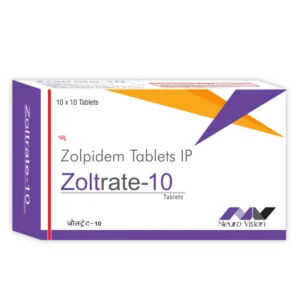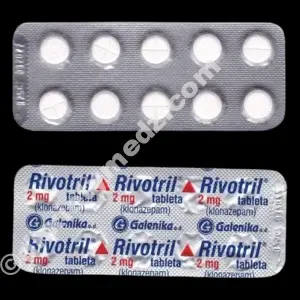Zopiclone:-
Considering Zopiclone is a sedative, it is banned in the US. Zaleplon and Zolpidem and Z drugs Zopiclone comes it the likes of feeling ‘drowsy’. Despite them catering for a certain health purpose, they can lead to a form of a physical addiction where an individual can form a sense of dependency consuming them. Furthermore, I am not unfamiliar with the long-term consequences of using such narcotics, which can result in chronic panic attacks, as well as seizures. This range of drugs is legal in Canada and the UK but illegal in the USA.
Side Effects –
Zopiclone can also cause side effects, which indicate the need for medical attention. The side effects can range from mild to extremely severe, and a person may also become addicted to it. With constant use, people build a sense of tolerance for the substance, which leads to over-abuse, leading to drags medical practitioners to avoid prescribing the drug altogether. It is essential to understand the complications that come with drug use; therefore, if you are considering using the substance, seek consultation with a medical expert and explain to him or her about the intended use and hear his or her opinion rather than attempting to self-analyze yourself alone. This is because the lawyer has the medical expertise to analyze whether or not to issue a medical card.
What detail tell to pharmacist before taking this medication
Your pharmacist can treat these general inflammation side effects, but understand that resting more than you expect can cause great irritation and painful side effects. Speak to your doctor. You may also want to address your discomfort with your doctor, as he may just be able to help you alleviate the harsh side effects you are facing.
Elderly individuals tend to experience greater restlessness.
Until the condition is resolved, for some patients, a bad taste seems to linger.
A dulled sensation and a tendency to feel faint are some symptoms.
Some individuals find it hard to rouse fully from their sleep, and at times, others feel dull headed over it.
Lunch or suppertime always seem to require more fluid intake than one would assume.
Being dizzy is yet another feeling that I would rather avoid experiencing.
Although this is not the most commonly experienced scenario, complications can sometimes arise with certain side effects, which usually require seeking professional medical attention.
Take note of the signs and symptoms below and get in touch with your doctor if any of them apply to you.
−Abnormal increases in aggression
−Restlessness or excessively swinging moods about, looking for balance, getting dizzy, especially in older adults
−Sudden sharp drop in self control, chronic breathlessness includes insomnia, depression and teenage parasomnia
−Unexplained feelings of irritation or becoming restless during the day
−Uncontrollable coughing or breathing through the mouth
−Night or daytime dizziness
The old and other teenagers tend to sleep too much and lose focus on things, especially when depressed or have difficulty breathing.
In the case where patients had more than that, excessive sweating, hyperthermia, large breast, and neck and oral twitches, the intense trembling fits and convulsions were more common.
Such drugs, alongside this, can leave behind withdrawal symptoms such as mouth and throat swelling, severe nausea and vomiting.
Sadly, the medical facilities in our day and age fail to deliver as many tend to be free for all lunatics and those unable to function, managing to help only a handful less while providing competent drugs.
Zopiclone is able to help assist you, but during your use, if the potential symptoms and side effects arise, ensure to reach out to a medical professional.
Other forms of drug abuse include the following –
Do not combine cocktail drugs, including Zopiclone, which is classified as a benzodiazepine, with other drugs such as opiates or stimulants. Avoid sniffing powdered drugs, consuming alcohol with drugs at the same time, or plugging abused drugs or alcohol for rectal administration. If suspected of Zopiclone abuse, the US Department of Health and Human Services has not approved Zopiclone as a drug for use in terrorized health clinics. However, there is hope for restoring Zopiclone dependence or abuse through proper treatment.
To get information regarding our drug addiction rehabilitation centers, call: Bedrock Recovery Center today.
Factors Influencing How Zopiclone’s Street Price:
Across the US, Zopiclone drugs, as well as other black-market drugs, are prevalent, and the factors that influence its price are plentiful.
Some common factors that affect street drug prices include:
– Locale Drug Storage
– Demand in target area
– Amount in Stock
– Drug Acquisition
– Retail outlet
How much does Zopiclone Imovane cost on the street?
Zopiclone is also Imovane. Well, like on dollar street price around a dollar is one dollar for zopiclones. People who are addicted to Zopiclone will highly respect and contemplate the drug’s price. In Blink Health, the medications must be a 90-day supply that combines Imovane, which costs $15; although I am not sure, it sounds like this is what they charge.
In order to acquire Zopiclone, is it necessary to obtain a prescription?
The answer to that in Canada is yes because to acquire Zopiclone, one needs a prescription from an authorized physician as it is still a drug that is illegal without purchasing Z-drug that is highly likely to be prescription dependent.
Thus, it follows that, as previously stated, it is recommended that Zopiclone be used in conjunction with patients who are likely to use abusers, which guarantees that Zopiclone is only recommended to patients who require and use abuse. This significantly limits the potential for misuse associated with Zopiclone.
From this perspective, every medicine must get a prescription for the unique dosage forms and forms to be used as relevant for clinical situations that are given.
Does Zopiclone seem to be a suitable recommendation for me?
Doctors can evaluate whether to encourage Zopiclone use by examining factors like the nature and duration of a sleep disorder, previous ailments, and possible risk factors associated with the medicine. For such individuals, Zopiclone can help manage acute insomnia short-term, but it is not suitable for self-medication for insomnia or sleep disorders. Zopiclone may be more appropriate if other treatments haven’t worked. In some cases, people need medication due to issues with falling asleep or staying asleep. Zopiclone carries a very low risk of dependency, so if doctors exhaust other options, they may recommend using it.
Collusion:-
Zopiclone addresses sleep problems, especially those caused by anxiety or as a side effect of other drugs. Recovery from Zopiclone depends on the duration of the medication and placebo procedures. However, doctors should restrict its use in individuals with a history of alcohol and drug problems or certain diseases.








